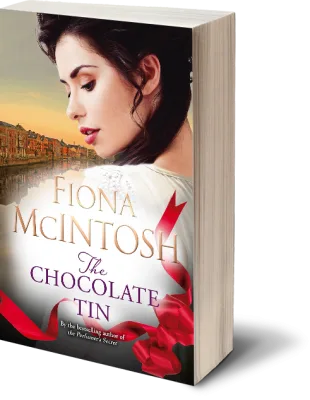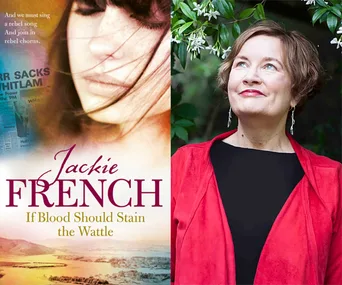Fiona McIntosh lives life the same way she writes books – in fifth gear, with never a backward glance.
“Don’t wait for the universe to deliver,” she says, “go out and get it, make it happen. Don’t worry about learning to walk, just run – if you fall over, at least you’ll have fallen over trying.”
Fifteen years ago, Fiona was working in the travel industry and raising twin boys, but she wanted more. So, she enrolled in a workshop with the late Australian author, Bryce Courtenay. Four months later, she had written her first novel and scored a three-book publishing deal. Today, she has written more than 33 books (such as the hit, The Perfumer’s Tale, and her latest, The Chocolate Tin). Between novels, she leads tours in the footsteps of her characters and hosts sell-out writers’ workshops.
“It’s a bit fairytale-ish,” Fiona says of that moment in which her life turned around. “I decided I wanted to write and I had a go. It opened up a whole new world for me.”
Fiona tries to give her publisher an idea of the plot before she begins writing, but “they usually get something very different. They’ve learnt to trust me.” Take The Chocolate Tin. Fiona started convinced that it would be about chocolate and temptation. There would be romantic destiny because “I believe in love at first sight,” she says.
So there was no doubt The Chocolate Tin would be a romance but, as Fiona wrote and researched, its themes became more complex. This is no simple love story. It also explores pressure on women at the turn of the 20th century “to make a good, strategic marriage”, the intolerance towards pacifists and the persecution of homosexuals.

“When that thread appeared while I was writing,” Fiona says, “I was as surprised as anyone and that set me off on a whole new path of research.”
She had already travelled through Europe, studying chocolate-making. Now she visited York in the UK, the home of both British chocolate and a notorious “lunatic asylum” in which gay men were once incarcerated and tortured in pursuit of a “cure”.
“It was hideous,” she says. “They used shock treatment and surgery. Homosexuality was seen as a condition that was treatable and gay men were left in institutions to rot. It resonated with me very powerfully.”
Fiona was struck by the contrast between the experiences of gay men in 1920s York and 21st century Adelaide, where she lives. One of her sons came out as gay just before she began writing The Chocolate Factory.
“He came out at 21,” she explains. “It is amazingly powerful when a young man of 21 finds his confidence and his sense of who he is. My son is living in a much better time to be gay. Most of his friends said, ‘So what?’ It’s not an issue. You are who you are.”
Her sons, Will and Jake, have both left home now. Indeed, everyone’s leaving home. Fiona and her husband, Ian, have bought a stone cottage in the Clare Valley, north of Adelaide, to become both their home and the venue for her writer’s retreats.
“We found this old farmhouse that had sheep living in it,” she says. “I said to Ian, ‘This is what a writer needs, to be among the vineyards.’ He said, ‘At our age, don’t you think we want to be nearer the city and doctors?’ I said, ‘No, that’s an old person talking.’ I’m in my mid-50s and he’s a bit older, but I said, ‘Let’s just live the dream’.
“I’m determined to have a goat, a donkey and chooks. I’m going to become that beanie-wearing woman in Wellington boots. I know I am.”
To celebrate the release of The Chocolate Tin, Penguin Random House is offering readers the chance to win a trip to York. Enter here.



